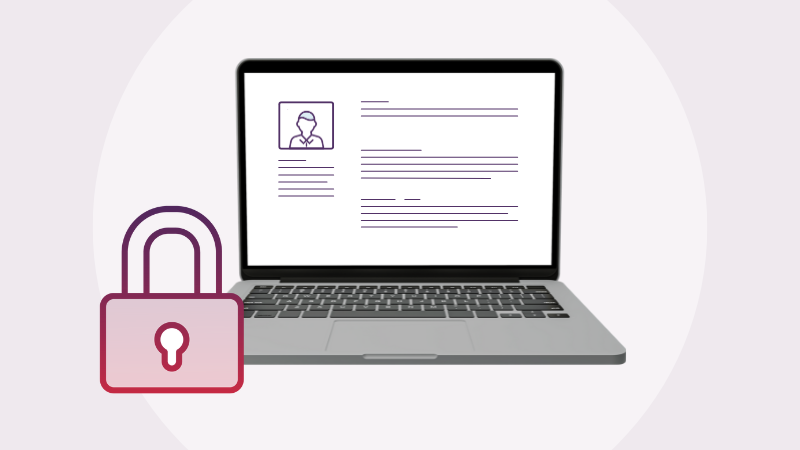Each May, during National Nurses Week, we pause to honor the nurses and case managers who serve as the backbone of healthcare. Their tireless commitment, expert care, and deep compassion help patients heal and thrive. But these dedicated professionals are under growing pressure—from rising caseloads and complex patient needs to the emotional toll of navigating a fractured healthcare system.
At MedScope, we believe empowering care teams means more than expressing gratitude—it means giving them the tools and technology to work more efficiently, stay connected to their patients, and ultimately provide safer, more person-centered care.
Through a comprehensive suite of Personal Emergency Response Systems (PERS), Remote Patient Monitoring (RPM), and engagement solutions, MedScope helps reduce administrative burdens, enable earlier interventions, and improve both patient and caregiver outcomes. In this blog, we explore how these technologies support nurses and case managers in meaningful ways—and why investing in them is essential to building a more sustainable healthcare workforce.
A System Under Stress: The Realities Nurses and Case Managers Face
Healthcare teams are stretched thin. A study by the American Nurses Foundation found that 56% of nurses experience burnout, citing emotional exhaustion and administrative overload as top concerns. Case managers—especially those coordinating care for Medicaid and Medicare populations—face similar challenges, managing high-risk patients across fragmented systems with limited time and resources.
Too often, skilled clinicians spend their days chasing paperwork, making follow-up calls, or reacting to avoidable crises. This reactive, high-stress environment not only leads to fatigue and turnover but also threatens care quality.
That’s where proactive technology solutions come in.
Lightening the Load with PERS, RPM, and Engagement Tools
MedScope’s integrated approach is designed with care teams in mind. Our solutions streamline workflows, enhance patient visibility, and reduce manual tasks, allowing nurses and case managers to focus on delivering care—not chasing data.
- PERS (Personal Emergency Response Systems) give patients 24/7 access to help at the press of a button—whether at home or on the go—helping to prevent hospitalizations, reduce emergency room usage, and provide peace of mind to caregivers. Nurses and case managers can rest assured knowing patients have a safety net, especially those living independently or with chronic conditions.
- RPM (Remote Patient Monitoring) captures real-time health metrics, such as blood pressure or oxygen levels, and flags concerning health trends. With this insight, clinicians can intervene earlier and avoid escalation. It transforms care from reactive to preventive.
- Engagement Solutions, powered by AI and supported by our dedicated wellness team, help close care gaps by identifying at-risk or disengaged members and ensuring timely outreach. From automated reminders to live wellness check-ins, these tools ensure members stay connected to their care plans—freeing up nurses and case managers to focus on high-priority interventions without getting bogged down by manual follow-ups.
Together, these tools improve visibility into patient status and help care teams manage more people, more effectively—without sacrificing quality or burning out.
Proactive, Person-Centered Care Made Possible
Nurses and case managers thrive when they can deliver the kind of care that drew them to the profession in the first place: personalized, proactive, and compassionate. However, to do that effectively, they need timely, actionable insights.
MedScope’s PERS and RPM solutions send notification alerts when a patient presses their help button, triggers an emergency call, or exhibits out-of-range biometric readings. Our 24/7 monitoring center evaluates the situation, dispatches emergency services if necessary, and keeps the care team informed throughout the resolution—ensuring coordinated care without placing additional burden on clinical staff.
Our engagement solutions complement this by making it easier to reach traditionally hard-to-reach populations. Whether through outreach via the member’s PERS device, direct phone calls, or mailed reminders, we help schedule important appointments such as screenings, wellness checks, and vaccinations. This not only improves preventive care and reduces avoidable emergency visits but also allows case managers to focus on more meaningful tasks—confident that scheduling and outreach are already being handled behind the scenes by MedScope’s services.
Improving Outcomes for Patients and Providers
When patients are engaged in their care and feel supported at home, everyone wins. Our solutions help achieve that by:
- Increasing patient safety with reliable PERS coverage at home and in the community
- Promoting independence, especially for aging adults and those with disabilities
- Reducing avoidable hospitalizations through early interventions and remote monitoring
- Enhancing satisfaction among both patients and the care teams supporting them
In fact, many case managers report that their patients feel more confident living independently when they have a MedScope device, and that translates to better adherence to care plans, reduced stress, and fewer emergency events.
Real Impact, Real Stories
Behind every device is a person—and behind every person, a care team working hard to keep them safe and supported. At MedScope, we’re honored to play a small part in those stories of care and connection.
One case manager recently shared:
“Your device helped one of my member’s and he is very grateful to have had your fall detection wireless device, which he feels saved his life. Thank you for everything you and your company does for our member’s.”
— CM, NM
This kind of impact is why we do what we do. Whether it’s preventing hospitalizations, giving patients greater confidence to live independently, or lightening the load for dedicated professionals, our solutions are designed to deliver peace of mind and better outcomes for all.
Celebrating and Supporting Our Frontline Teams
National Nurses Week is an opportunity to say thank you. But real support goes beyond appreciation—it’s about investing in the infrastructure that allows nurses and case managers to thrive.
That means giving them tools that:
- Reduce workload
- Promote timely, efficient care
- Provide visibility into patient health and behavior
- Allow them to focus on building relationships and driving outcomes
At MedScope, we’re proud to stand beside the clinicians and case managers who make healthcare work. Our solutions are built to empower them—today, during Nurses Week, and every day after.
Conclusion: Building a Better Future Together
Empowering nurses and case managers doesn’t just improve morale—it improves care. By leveraging technologies like PERS, RPM, and engagement platforms, we can reduce the burden on care teams, enhance patient outcomes, and create a more sustainable, connected healthcare system.
This Nurses Week, let’s celebrate our caregivers not just with gratitude—but with the support and tools they deserve. If you would like more information about MedScope solutions, contact us today!






